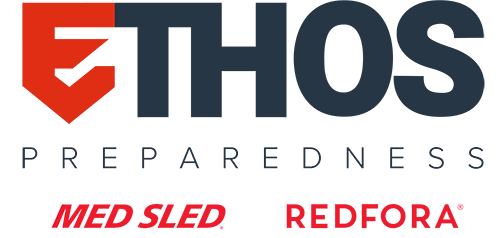Author Prologue: Steve Eberlein
This is not a unique disaster story - but it’s a story not told often enough.
For me, the word "preparedness" conjures thoughts of Go-Bags, crank radios, well appointed stockpiles of shelf-stable food - of rugged individualists hellbent on surviving nature’s fury against all odds. That said, we can't always prevail in the face of disaster by our efforts alone - nor should we.
During times of disaster, your most important resource may prove to be the love of a friend, the generosity of a family, the kindness of a good community. The inherent good in your – work, faith, family, neighbor – community can bring relief that no relief agency can.
---

After dropping the horses 40 miles off in Lebanon, they caught two hours’ sleep on a friend's floor. Their second son, Connor, joined them for their second trip to the Broken M. Finding the road completely inaccessible, they drove the "backroads," nothing more than faint paths drawn by years of wandering steeds. They snagged two more horses.
Killian lobbed a pump into the pond and opened the sprinklers. They fled. A third trip in, two more horses, they fled once more. Every successful rescue added to an unresolved problem – where could they flee?
---

---
This is the moment when these stories usually end. Danger, heroics, loss, generosity, triumph - Fin. But once the credits have rolled and the last drips of adrenaline have run their course, the protagonists of stories like this need something else - something less pretty. They need the permission and safety to fall apart.
Kaci bore witness. "This family is lost. They don't know what to eat. They don't know when to shower. They don’t remember if they’ve brushed their teeth. They don't know where their clean clothes are. They don't know how to make a decision because they've been traumatized. I would tell people who have endured the trauma of a disaster to trust somebody to make decisions for them."
This is also the moment to look at the shoulders that the protagonists stood upon. Kaci's generosity of spirit alone could not overcome the challenge of accepting 50 additional animals onto her four-animal ranch and 11 people into her modest home. "I put a call out to our community,” Kaci said. "I just said, 'we need help with anything and everything you can help with.' I had never had to ask our community for help before, but other people have and they come through. It's a good community."
So what do we take away from this story at this particular moment in time?
Preparedness is not about the rugged individualist hellbent on surviving nature’s fury against all odds. This concept of preparedness is not enough. Preparedness is about being equipped - materially, socially and emotionally - to also help others when the hour arrives. Preparedness is being willing to seek and accept help during a time of trauma.
As we evolve, preparedness is in need of a deliberate and necessary movement from "I" to "us."

